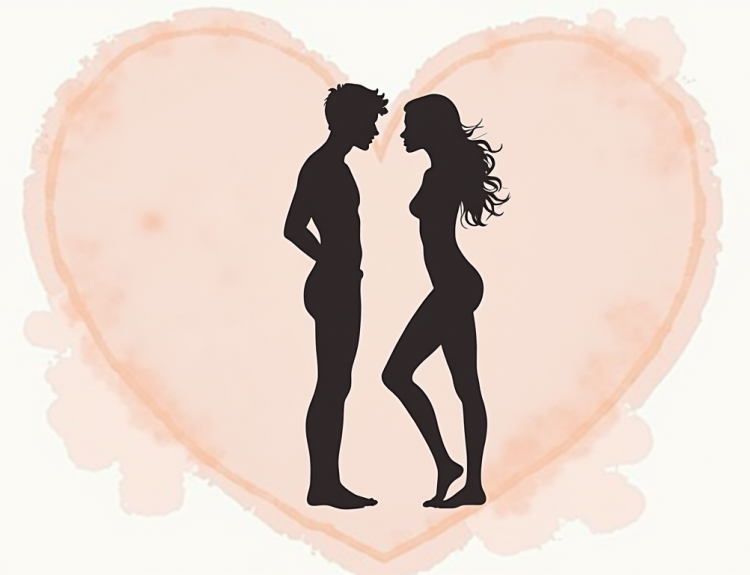
From Fear to Connection: Practical Ways to Overcome Dating Anxiety
Reading time: 12 minutes
Table of Contents
- Understanding Dating Anxiety: What’s Really Holding You Back
- Why We Avoid Dating: The Psychology Behind Resistance
- Practical Strategies to Push Past Your Comfort Zone
- Navigating Digital Dating When You’re Anxious
- First Date Mastery: From Preparation to Post-Date Reflection
- Building Dating Confidence Through Incremental Steps
- Success Stories: How Others Overcame Dating Anxiety
- Your Dating Journey: Creating Momentum That Lasts
- Frequently Asked Questions
Understanding Dating Anxiety: What’s Really Holding You Back
Dating anxiety isn’t just nervousness—it’s a complex emotional response that keeps countless people from pursuing meaningful connections. At its core, this anxiety stems from vulnerability, rejection fears, and often, deep-seated beliefs about our worthiness of love.
What makes dating anxiety particularly challenging is how it manifests physically. Your heart races, your palms sweat, your mind goes blank—all while you’re trying to make a good impression. This isn’t just uncomfortable; it can be genuinely distressing.
The Physical Side of Dating Anxiety
Dating anxiety triggers your body’s stress response. You might experience:
- Increased heart rate and breathing
- Stomach discomfort or “butterflies”
- Excessive sweating
- Difficulty concentrating
- Sleep disturbances before scheduled dates
Jordan, a 32-year-old software developer, describes his experience: “Before dates, my thoughts race so fast I can barely function. I’ve canceled more dates than I’ve been on, simply because the physical anxiety becomes overwhelming.”
The Cognitive Patterns That Fuel Avoidance
Beyond physical symptoms, dating anxiety involves persistent thought patterns that reinforce avoidance:
- Catastrophizing: “If I say something awkward, they’ll think I’m a complete failure.”
- Mind-reading: “They’ll definitely find me boring and uninteresting.”
- Personalization: “If the date doesn’t go well, it proves I’m undatable.”
- All-or-nothing thinking: “Either this date goes perfectly, or I’m doomed to be alone forever.”
These thoughts aren’t random—they’re protective mechanisms your mind has developed, often based on past experiences or learned beliefs about relationships. Recognizing these patterns is the first step toward changing them.
Why We Avoid Dating: The Psychology Behind Resistance
Avoidance feels protective in the moment, but understanding why we avoid dating can help break the cycle. According to relationship psychologist Dr. Lisa Firestone, “Dating avoidance often stems from early attachment patterns and self-protective mechanisms that once served us but now limit our ability to connect.”
Common Reasons People Avoid Dating
| Avoidance Pattern | Root Cause | How It Manifests | First Step to Change |
|---|---|---|---|
| Rejection Sensitivity | Past painful rejections or criticism | Refusing to use dating apps; canceling dates last minute | Gradual exposure to mild rejection scenarios |
| Perfectionism | Fear of being judged as inadequate | Endless preparation; dating only when “ready” | Setting realistic expectations; embracing imperfection |
| Attachment Anxiety | Inconsistent caregiving in childhood | Intense worry about partner’s interest; need for reassurance | Building secure attachment through therapy |
| Fear of Intimacy | Trust issues; vulnerability feels unsafe | Dating unavailable people; keeping conversations surface-level | Practicing emotional vulnerability in safe relationships |
| Low Self-Worth | Internalized negative beliefs about desirability | Self-sabotage; choosing partners who reinforce negative beliefs | Challenging core beliefs through evidence gathering |
Recent research published in the Journal of Social and Personal Relationships found that 67% of singles who identify as having dating anxiety report that past relationship trauma significantly contributes to their current avoidance patterns. This suggests that healing often requires addressing not just present fears but past wounds.
Practical Strategies to Push Past Your Comfort Zone
Moving from analysis to action requires practical, concrete steps. Here’s how to push yourself past dating resistance with evidence-based approaches:
The Exposure Ladder Technique
Exposure therapy is one of psychology’s most validated approaches for anxiety. For dating, create your personal exposure ladder:
- Identify your specific fears (rejection, awkward silences, physical intimacy)
- Create 8-10 dating-related scenarios from least to most anxiety-provoking
- Start with the lowest-anxiety scenario and practice until anxiety decreases by 50%
- Gradually work up the ladder, never rushing but never stopping progress
Example exposure ladder for someone with severe dating anxiety:
- Create a dating profile (without publishing)
- Publish profile and browse matches (without messaging)
- Message one potential match with a template message
- Have a brief text conversation with a match
- Schedule a 15-minute video chat
- Meet for a 30-minute coffee date in a familiar location
- Go on a full dinner date
- Go on a date involving an activity (more unpredictability)
Scheduled Dating Commitments
Waiting for motivation often doesn’t work. Instead, schedule dating activities like any other important commitment:
- Set specific days/times for dating app usage (e.g., Sunday 7-8pm, Wednesday 12-1pm)
- Create a monthly dating quota (e.g., message 5 new people, schedule 2 first dates)
- Use accountability partners who check in on your dating progress
- Reward yourself for meeting dating commitments (regardless of outcomes)
Maya, a 29-year-old who overcame severe dating anxiety, shares: “I created ‘Dating Tuesdays’ where I committed to one dating-related action each week. Sometimes it was just updating my profile or messaging someone new. Having it in my calendar like a work meeting made it non-negotiable. Six months later, I’d gone on more dates than in the previous five years combined.”
Navigating Digital Dating When You’re Anxious
Digital dating presents unique challenges for the anxiety-prone, but also offers distinct advantages. You can craft responses thoughtfully and ease into interaction gradually—benefits not available in spontaneous in-person meetings.
Creating a Dating Profile That Builds Confidence
Your dating profile should serve dual purposes: attracting compatible matches while building your own confidence.
- Select photos that make you feel authentic and confident (not just what you think others want to see)
- Write your profile during a positive mindset (avoid writing when feeling insecure)
- Include specific interests that would make for easy conversation topics
- Be honest about who you are, but focus on what you bring to relationships rather than perceived shortcomings
According to dating coach Damona Hoffman, “Authentic profiles create authentic connections. When anxiety-prone daters try to present a ‘perfect’ image, they perpetuate their fear of being ‘found out.’ Start the relationship honestly, and you’ll feel more secure from the beginning.”
From Messages to Meeting: A Gradual Approach
The transition from digital conversation to in-person meeting is where many anxious daters falter. Create a structured progression:
- Text-based conversation (dating app messages, texting)
- Voice messages or phone call (less pressure than video but more connection than text)
- Video chat (15-30 minutes with a natural endpoint)
- Brief in-person meeting (coffee, walk in a public place)
Set expectations clearly: “I’d love to chat by phone first before we meet. I find it helps me get to know someone better.” Most people will respect this approach, and those who don’t may not be the right match for someone managing anxiety.
First Date Mastery: From Preparation to Post-Date Reflection
Top First Date Anxiety Triggers
Source: Survey of 1,200 singles with self-reported dating anxiety, Journal of Relationship Studies, 2022
First dates represent the peak anxiety moment for many. Preparation can significantly reduce this anxiety by creating structure and predictability.
The 24-Hour Pre-Date Protocol
What you do in the 24 hours before a date significantly impacts anxiety levels:
- Physical preparation: Get adequate sleep, moderate exercise, and limit caffeine/alcohol
- Mental rehearsal: Visualize the date going well, including how you’ll handle any awkward moments
- Conversation preparation: Have 3-5 open-ended questions ready (but don’t memorize a script)
- Logistics planning: Confirm time/place, plan transportation, arrive 10 minutes early
- Anxiety management: Schedule a 10-minute calming ritual before leaving (meditation, deep breathing, affirmations)
Psychologist Dr. Kristie Overstreet recommends: “Create a balanced focus between preparation and flexibility. Over-preparation can increase anxiety by setting unrealistic expectations for how the interaction ‘should’ go.”
During the Date: Presence Over Perfection
Once on the date, shift from preparation to presence:
- Focus on curiosity about your date rather than their evaluation of you
- Practice active listening (reduces self-consciousness by directing attention outward)
- Acknowledge anxiety if appropriate: “I was a bit nervous about today, but I’m really glad we’re doing this”
- Use grounding techniques for anxiety spikes (notice 5 things you can see, 4 things you can touch, etc.)
- Remember your worth doesn’t depend on this one interaction
Building Dating Confidence Through Incremental Steps
Sustainable confidence comes from accumulated experiences, not single breakthroughs. Each dating interaction—regardless of outcome—builds your capacity and resilience.
Tracking Progress Beyond Success/Failure
Create metrics beyond “Did they like me?” to measure dating progress:
- Anxiety management success: “I felt anxious but still participated fully”
- Vulnerability achievements: “I shared something authentic about myself”
- Boundary setting: “I communicated what I needed/wanted clearly”
- Presence quality: “I stayed present rather than caught in anxious thoughts”
- Recovery speed: “I bounced back from disappointment more quickly than before”
Keep a simple dating journal tracking these metrics after each interaction. Over time, you’ll see progress even when individual dates don’t lead to relationships.
Turning Rejection into Resilience
Rejection is inevitable in dating, but its impact is manageable:
- Practice self-compassion after disappointments (“This is a normal part of dating, not a reflection of my worth”)
- Extract learning from each experience (“What can I learn about myself/my preferences from this?”)
- Create rejection resilience rituals (call a supportive friend, engage in a confidence-building activity)
- Track rejection exposure benefits (the more you experience rejection, the less power it holds)
Research shows that people who view rejection as information rather than condemnation develop greater dating resilience over time.
Success Stories: How Others Overcame Dating Anxiety
Learning from others who’ve successfully navigated dating anxiety provides both inspiration and practical strategies.
Alex’s Story: From Avoidance to Engagement
Alex (34) went four years without dating after a painful breakup. “Dating apps felt overwhelming, and the thought of being vulnerable again seemed impossible,” he recalls. His turning point came through intentional exposure:
- Month 1: Created a dating profile with the help of trusted friends who highlighted his genuine qualities
- Month 2: Committed to 10 minutes daily on dating apps with a timer (making it manageable)
- Month 3: Set a goal of one video chat per week, regardless of perceived “compatibility”
- Month 4: Scheduled coffee dates limited to 45 minutes (creating natural endpoints)
- Month 6: Met his current partner after 7 first dates that built his confidence incrementally
“What worked wasn’t finding the ‘perfect strategy’ but consistent exposure that desensitized my fear response,” Alex explains. “Each date that didn’t end in disaster—even when there wasn’t a connection—proved my anxiety wrong.”
Mia’s Approach: Combining Therapy with Practical Action
Mia (29) struggled with intense physical anxiety symptoms before dates. Her integrated approach included:
- Cognitive-behavioral therapy to address catastrophic thinking patterns
- Medication consultation with her doctor for anxiety management options
- Somatic practices to recognize and release physical tension
- Date planning focused on activities (museum visits, cooking classes) to reduce conversation pressure
- Direct communication about her anxiety with dates when appropriate
“Being upfront about my anxiety was surprisingly empowering,” Mia shares. “When I told a date I was feeling nervous, he shared his own anxieties. That mutual vulnerability created immediate connection instead of the distance I feared.”
Your Dating Journey: Creating Momentum That Lasts
The path from anxiety to comfortable dating isn’t linear—it’s a series of advances, setbacks, and adjustments. What matters most is maintaining forward movement through consistent action.
Your Personal Dating Manifesto
Create a personal dating manifesto that guides your approach regardless of temporary emotions:
- I commit to treating dating as skill development, not a test of my worth
- I will take at least one dating action weekly, regardless of motivation
- I recognize that discomfort is part of growth, not a signal to retreat
- I deserve connections that honor my authentic self
- I will celebrate my courage in dating, independent of outcomes
Review this manifesto when anxiety tempts you to withdraw or when rejection feels overwhelming. Your commitment to the process matters more than individual results.
The 90-Day Dating Action Plan
Create a structured 90-day plan with specific, measurable dating actions:
- Week 1-2: Create/update dating profiles, commit to 15 minutes daily app engagement
- Week 3-4: Initiate 2-3 new conversations weekly, practice anxiety management techniques
- Week 5-8: Schedule one phone/video chat weekly, reflect on what you’re learning about your preferences
- Week 9-12: Aim for one in-person date every 1-2 weeks, journal about your progress
- Week 13: Review your experience, celebrate your growth, adjust your approach based on what you’ve learned
The key is consistency over intensity. Small, regular actions create more lasting change than sporadic major efforts followed by avoidance.
Your Authentic Dating Blueprint: Turning Anxiety into Action
Dating anxiety doesn’t have to be a permanent barrier to meaningful connection. By understanding its roots, implementing strategic exposure, and consistently taking small brave actions, you can transform your relationship with dating.
Remember these essential principles as you move forward:
- Progress comes from action, not analysis—you can’t think your way out of dating anxiety
- Each dating interaction builds your resilience regardless of outcome
- Your anxiety is not unique or shameful—many potential partners are navigating similar feelings
- Dating becomes easier through consistent exposure, not by waiting for confidence to magically appear
- The right connections will appreciate your authentic self, including your vulnerability
As you build your dating confidence, remember that the goal isn’t to eliminate anxiety completely, but to develop a relationship with it that doesn’t limit your choices. Your capacity for connection is greater than your fear—and with each step forward, you prove this to yourself.
What small, concrete action will you take in the next 24 hours to begin moving beyond dating anxiety? The journey of a thousand connections begins with a single message, call, or coffee date. Your future self is already grateful for the courage you’re finding today.
Frequently Asked Questions
How do I know if my dating anxiety is “normal” or requires professional help?
Dating anxiety exists on a spectrum. Consider seeking professional support if your anxiety: 1) prevents you from dating entirely for extended periods, 2) causes significant distress or physical symptoms, 3) doesn’t improve with self-help strategies over time, or 4) stems from past relationship trauma. Many people benefit from working with a therapist even with “normal” levels of dating anxiety, as professional guidance can accelerate progress and provide personalized strategies.
How do I handle anxiety that spikes during a date?
First, recognize that brief anxiety spikes are normal and often unnoticeable to others. When anxiety intensifies during a date, try: 1) Taking a brief bathroom break to practice 4-7-8 breathing (inhale for 4, hold for 7, exhale for 8), 2) Grounding yourself by focusing on sensory details around you, 3) Sipping water slowly, which physiologically slows your heart rate, or 4) Gently acknowledging it (“I’m feeling a bit nervous because I’m enjoying our conversation”) which often reduces its power. Remember that perfect composure isn’t required for a successful connection.
Is it better to be open about my dating anxiety or hide it from potential partners?
Selective authenticity often works best—neither hiding your experience completely nor leading with it. Early dating should focus on connection rather than potential challenges. However, if anxiety is visibly affecting your interaction, a brief, confident acknowledgment can create authentic connection. For example: “I’m actually a bit nervous—I was really looking forward to meeting you” frames anxiety as evidence of interest rather than inadequacy. As connection deepens, more detailed conversations about emotional experiences become natural and appropriate.



